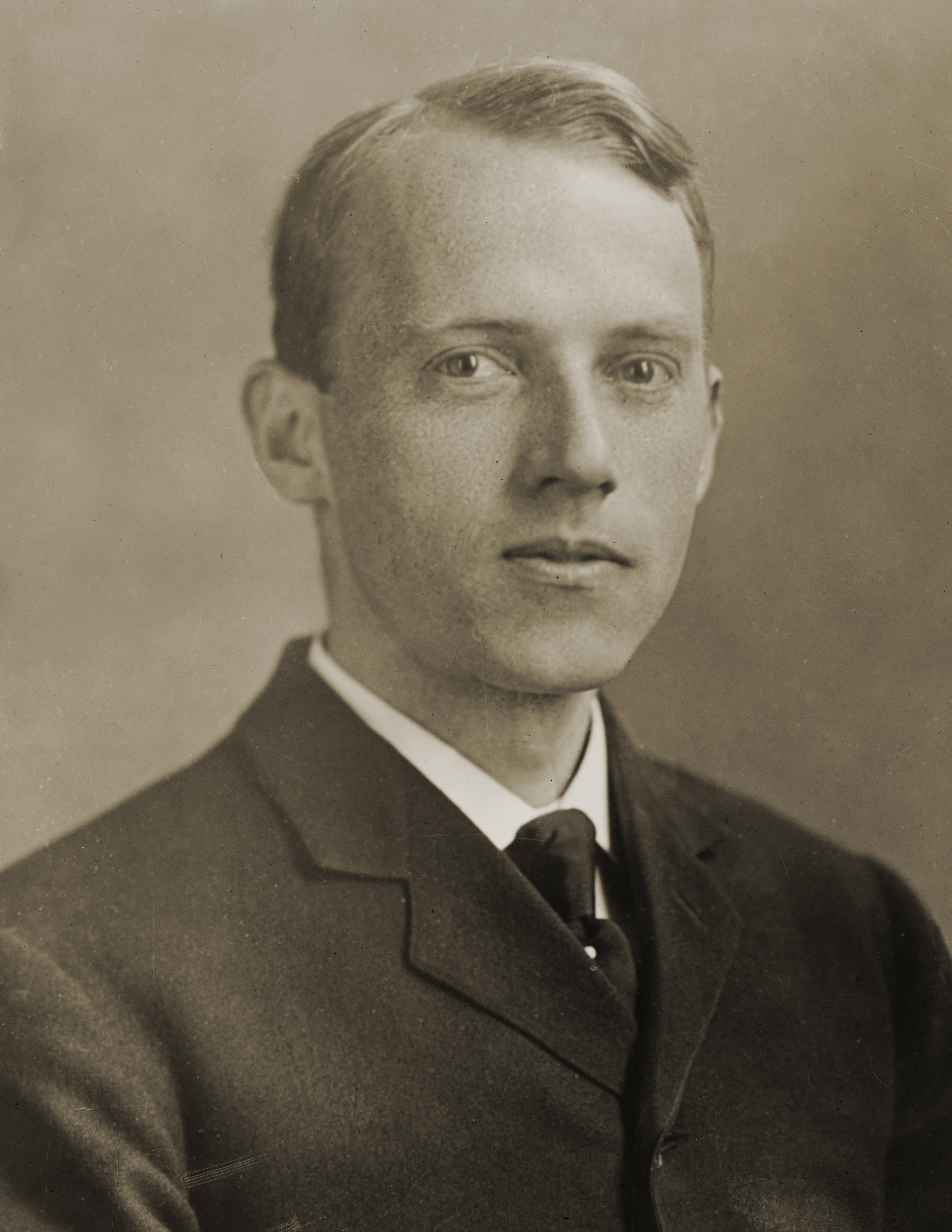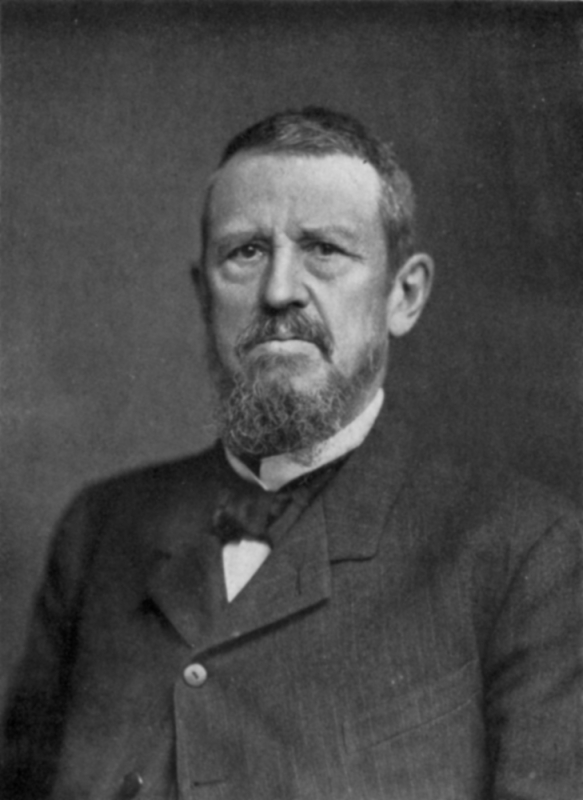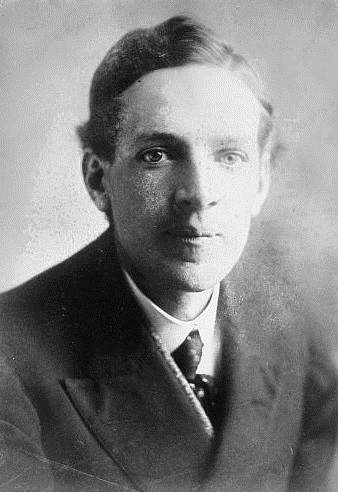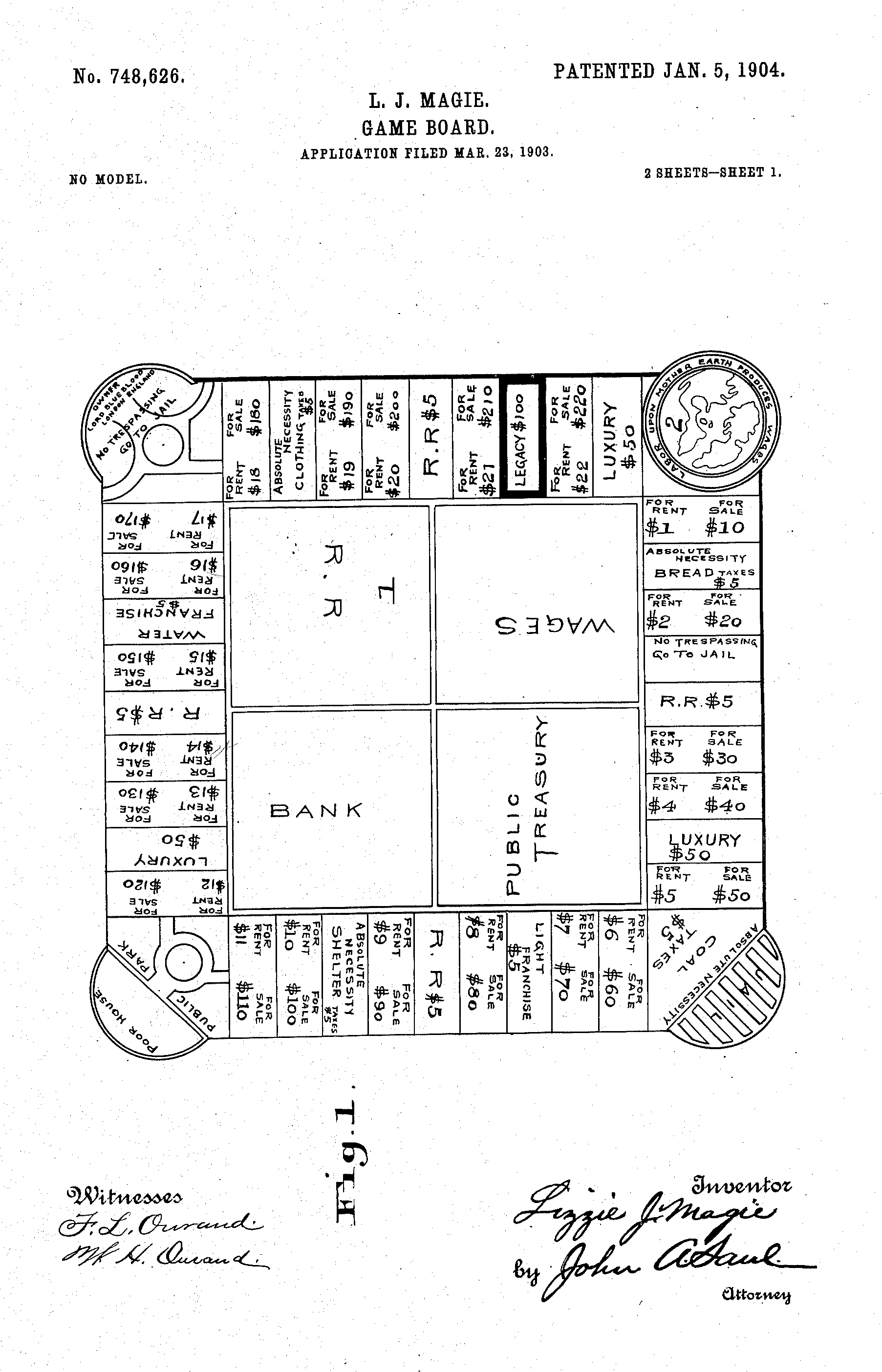|
Scott Nearing
Scott Nearing (August 6, 1883 – August 24, 1983) was an American radical economist, educator, writer, political activist, pacifist, vegetarian and advocate of simple living. Biography Early years Nearing was born in Morris Run, Tioga County, Pennsylvania, the heart of the state's coal country. Nearing's grandfather, Winfield Scott Nearing, had arrived in Tioga County with his family in 1864, at the age of 35, when he accepted a job as a civil and mining engineer. Before the end of the year he had assumed full control of mining operations as the superintendent of the Morris Run Coal Company, a position of authority which he held for the remainder of his working life. An intense, driven man, Scott Nearing's grandfather studied science and nature, practiced gardening and carpentry, and regularly received crates of books from New York City, amassing a large personal library. In his memoirs written late in his life, Scott Nearing would recall his grandfather as one of the four ... [...More Info...] [...Related Items...] OR: [Wikipedia] [Google] [Baidu] |
Morris Run, Pennsylvania
Morris Run is an unincorporated community in Hamilton Township, Tioga County, Pennsylvania, United States. The community is east of Blossburg. Morris Run has a post office A post office is a public facility and a retailer that provides mail services, such as accepting letters and parcels, providing post office boxes, and selling postage stamps, packaging, and stationery. Post offices may offer additional ser ... with ZIP code 16939. References Unincorporated communities in Tioga County, Pennsylvania Unincorporated communities in Pennsylvania {{TiogaCountyPA-geo-stub ... [...More Info...] [...Related Items...] OR: [Wikipedia] [Google] [Baidu] |
Wharton School Of Business
The Wharton School of the University of Pennsylvania ( ; also known as Wharton Business School, the Wharton School, Penn Wharton, and Wharton) is the business school of the University of Pennsylvania, a private Ivy League research university in Philadelphia. Generally considered to be one of the most prestigious business schools in the world, the Wharton School is the world's oldest collegiate business school, having been established in 1881 through a donation from Joseph Wharton. The Wharton School awards the Bachelor of Science with a school-specific economics major, with concentrations in over 18 disciplines in Wharton's academic departments. The degree is a general business degree focused on core business skills. At the graduate level, the Master of Business Administration (MBA) program can be pursued standalone or offers dual studies leading to a joint degree from other schools (e.g., law, engineering, government). Similarly, in addition to its tracks in accounting, finan ... [...More Info...] [...Related Items...] OR: [Wikipedia] [Google] [Baidu] |
American Union Against Militarism
The American Union Against Militarism (AUAM) was an American pacifist organization established in response to World War I. The organization attempted to keep the United States out of the European conflict through mass demonstrations, public lectures, and the printed word. Failing in that effort with American entry into the war in April 1917, the Union battled against conscription, action which subjected it to state repression, and military intervention. The organization was eventually dissolved after the war in 1922. Organizational history Establishment In January 1915 a group of New York City pacifists known as the "Henry Street Peace Committee" organized an organization known first as the "Anti-Militarism Committee" in an effort to keep the United States from entering World War I in support of the Entente powers against Germany and the Austro-Hungarian empire.Robert C. Cottrell, ''Roger Nash Baldwin and the American Civil Liberties Union.'' New York: Columbia University Press, ... [...More Info...] [...Related Items...] OR: [Wikipedia] [Google] [Baidu] |
Upton Sinclair
Upton Beall Sinclair Jr. (September 20, 1878 – November 25, 1968) was an American writer, muckraker, political activist and the 1934 Democratic Party nominee for governor of California who wrote nearly 100 books and other works in several genres. Sinclair's work was well known and popular in the first half of the 20th century, and he won the Pulitzer Prize for Fiction in 1943. In 1906, Sinclair acquired particular fame for his classic muck-raking novel, '' The Jungle'', which exposed labor and sanitary conditions in the U.S. meatpacking industry, causing a public uproar that contributed in part to the passage a few months later of the 1906 Pure Food and Drug Act and the Meat Inspection Act. In 1919, he published '' The Brass Check'', a muck-raking exposé of American journalism that publicized the issue of yellow journalism and the limitations of the "free press" in the United States. Four years after publication of ''The Brass Check'', the first code of ethics fo ... [...More Info...] [...Related Items...] OR: [Wikipedia] [Google] [Baidu] |
Billy Sunday
William Ashley "Billy" Sunday (November 19, 1862 – November 6, 1935) was an American outfielder in baseball's National League and widely considered the most influential American evangelist during the first two decades of the 20th century. Born into poverty in Iowa, Sunday spent some years at the Iowa Soldiers' Orphans' Home before working at odd jobs and playing for local running and baseball teams. His speed and agility provided him the opportunity to play baseball in the major leagues for eight years, where he was an average hitter and a good fielder known for his base-running. Converting to evangelical Christianity in the 1880s, Sunday left baseball for the Christian ministry. He gradually developed his skills as a pulpit evangelist in the Midwest and then, during the early 20th century, he became the nation's most famous evangelist with his colloquial sermons and frenetic delivery. Sunday held widely reported campaigns in America's largest cities, and he attracted the ... [...More Info...] [...Related Items...] OR: [Wikipedia] [Google] [Baidu] |
Provost (education)
A provost is a senior academic administrator. At many institutions of higher education, they are the chief academic officer, a role that may be combined with being deputy to the chief executive officer. They may also be the chief executive officer of a university, of a branch campus of a university, or of a college within a university. Duties, role, and selection The specific duties and areas of responsibility for a provost vary from one institution to another, but usually include supervision and oversight of curricular, instructional, and research affairs. The various deans of a university's schools, colleges, or faculties typically report to the provost, or jointly to them and the institution's chief executive officer—which office may be called president, chancellor, vice-chancellor or rector. Likewise do the heads of the various interdisciplinary units and academic support functions (such as libraries, student services, the registrar, admissions, and information techn ... [...More Info...] [...Related Items...] OR: [Wikipedia] [Google] [Baidu] |
Cause Célèbre
A cause célèbre (,''Collins English Dictionary – Complete and Unabridged'', 12th Edition, 2014. S.v. "cause célèbre". Retrieved November 30, 2018 from https://www.thefreedictionary.com/cause+c%c3%a9l%c3%a8bre ,''Random House Kernerman Webster’s College Dictionary''. S.v. "cause célèbre." Retrieved November 30, 2018 from https://www.thefreedictionary.com/cause+c%c3%a9l%c3%a8bre ; pl. causes célèbres, pronounced like singular) is an issue or incident arousing widespread controversy, outside campaigning, and heated public debate. The term continues in the media in all senses. It is sometimes used positively for celebrated legal cases for their precedent value (each ''locus classicus'' or "case-in-point") and more often negatively for infamous ones, whether for scale, outrage, scandal, or conspiracy theories. The term is a French phrase in common usage in English. Since it has been fully adopted into English and is included unitalicized in English dictionaries,''Americ ... [...More Info...] [...Related Items...] OR: [Wikipedia] [Google] [Baidu] |
Monopoly (game)
''Monopoly'' is a multi-player economics-themed board game. In the game, players roll two dice to move around the game board, buying and trading properties and developing them with houses and hotels. Players collect rent from their opponents, aiming to drive them into bankruptcy. Money can also be gained or lost through ''Chance'' and ''Community Chest'' cards and tax squares. Players receive a stipend every time they pass "Go" and can end up in jail, from which they cannot move until they have met one of three conditions. House rules, hundreds of different editions, many spin-offs, and related media exist. ''Monopoly'' has become a part of international popular culture, having been licensed locally in more than 103 countries and printed in more than 37 languages. , it was estimated that the game had sold 275 million copies worldwide. ''Monopoly'' is derived from '' The Landlord's Game'', created by Lizzie Magie in the United States in 1903 as a way to demonstrate that an econo ... [...More Info...] [...Related Items...] OR: [Wikipedia] [Google] [Baidu] |
The Landlord's Game
''The Landlord's Game'' is a board game patented in 1904 by Elizabeth Magie as . It is a realty and taxation game intended to educate users about Georgism. It is the inspiration for the 1935 board game ''Monopoly''. History In 1902 to 1903, Magie designed the game and play tested it in Arden, Delaware. The game was created to be a "practical demonstration of the present system of land grabbing with all its usual outcomes and consequences". She based the game on the economic principles of Georgism, a system proposed by Henry George, with the object of demonstrating how rents enrich property owners and impoverish tenants. She knew that some people could find it hard to understand why this happened and what might be done about it, and she thought that if Georgist ideas were put into the concrete form of a game, they might be easier to demonstrate. Magie also hoped that when played by children the game would provoke their natural suspicion of unfairness, and that they might car ... [...More Info...] [...Related Items...] OR: [Wikipedia] [Google] [Baidu] |
Hegel
Georg Wilhelm Friedrich Hegel (; ; 27 August 1770 – 14 November 1831) was a German philosopher. He is one of the most important figures in German idealism and one of the founding figures of modern Western philosophy. His influence extends across the entire range of contemporary philosophical topics, from metaphysical issues in epistemology and ontology, to political philosophy, the philosophy of history, philosophy of art, philosophy of religion, and the history of philosophy. Born in 1770 in Stuttgart during the transitional period between the Enlightenment and the Romantic movement in the Germanic regions of Europe, Hegel lived through and was influenced by the French Revolution and the Napoleonic wars. His fame rests chiefly upon '' The Phenomenology of Spirit'', ''The Science of Logic'', and his lectures at the University of Berlin on topics from his ''Encyclopedia of the Philosophical Sciences''. Throughout his work, Hegel strove to address and correct the probl ... [...More Info...] [...Related Items...] OR: [Wikipedia] [Google] [Baidu] |
Karl Marx
Karl Heinrich Marx (; 5 May 1818 – 14 March 1883) was a German philosopher, economist, historian, sociologist, political theorist, journalist, critic of political economy, and socialist revolutionary. His best-known titles are the 1848 pamphlet ''The Communist Manifesto'' and the four-volume (1867–1883). Marx's political and philosophical thought had enormous influence on subsequent intellectual, economic, and political history. His name has been used as an adjective, a noun, and a school of social theory. Born in Trier, Germany, Marx studied law and philosophy at the universities of Bonn and Berlin. He married German theatre critic and political activist Jenny von Westphalen in 1843. Due to his political publications, Marx became stateless and lived in exile with his wife and children in London for decades, where he continued to develop his thought in collaboration with German philosopher Friedrich Engels and publish his writings, researching in the British Mus ... [...More Info...] [...Related Items...] OR: [Wikipedia] [Google] [Baidu] |



.jpg)



